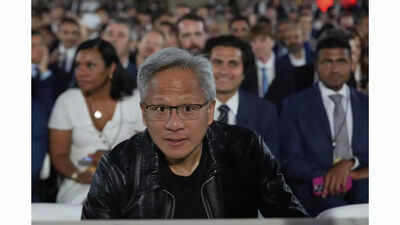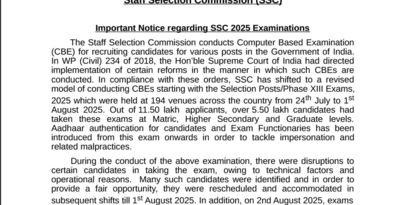“I don’t want you to just be smart,” says Nvidia CEO Jensen Huang as he shares essential lessons for students

The room was brimming with aspirations and hope-filled eyes. Hundreds of Stanford students, many destined to embark on high-powered careers, sat prepared to hear from one of the world’s most influential tech leaders. They might have anticipated a talk on GPUs, AI breakthroughs, or market strategy; after all, Jensen Huang is the architect of NVIDIA’s meteoric rise into one of the most valuable companies on the planet.With a jarring metaphor, Huang said, “I hope suffering happens to you” at Stanford University’s SIEPR Economic Summit. The silence that followed was almost physical. It was not a provocation or a warning, but a prelude to the lesson most people spend decades learning, if they learn it at all. In a world increasingly allured by comfort, shortcuts, and quick solutions, Huang reiterated that you need something more to succeed. While intelligence and talent have a significant seat at the table of success, he emphasised that what matters most is the character forged in the crucible of hardship.
Not intelligence, struggle is the real currency of greatness
Huang’s core message stripped success down to its most essential element. “Greatness comes from character. Character isn’t formed out of smart people. It’s formed out of people who suffered,” he told the audience.It was not a comfortable truth. Many in the room had been groomed for achievement since childhood, often shielded from failure by careful planning and relentless support. But Huang’s warning was pointed, without adversity, brilliance can become brittle. When life inevitably applies pressure, untested talent can shatter.
Leaders are made through struggle
Huang’s own life reads like a case study in his philosophy. Born in Taiwan, he moved to the United States as a child, where survival took precedence over comfort. He washed dishes and cleaned toilets in roadside diners. He endured bullying. He stumbled and failed. Each experience, he insists, was less a setback than a shaping force.Those early years did not shatter, rather challenged and tempered him. It helped him imbibe resilience, resourcefulness, and the kind of perspective that no Ivy League syllabus can replicate. As it is often said that hardships in life often gifts you the lessons no textbook ever can.When the time came to lead NVIDIA through the volatile, high-risk terrain of advanced technology, Huang was drawing not only on technical brilliance, but on the mental steel forged during those unglamorous years.
The gift of struggle
Huang’s message is etched in black and white: He was not romanticising hardship, nor asking students to go out and manufacture suffering. His challenge was subtler and more profound: Stop escaping discomfort. Do not give up in the face of adversity. Understand that failure, rejection, and pressure are not detours from success, but essential parts of the journey.If you avoid struggle for too long, he warned, you risk becoming fragile. And when life finally delivers its inevitable blows, you may find yourself unprepared. That, he explained, was why he chose the word “suffering.” It was not meant to instil fear, but to spark readiness.
From smart to great
“I don’t want you to just be smart,” he told the students. “I want you to be great.”Greatness, in Huang’s view, has little to do with titles or stock valuations, and everything to do with how a person responds when circumstances collapse. The real test is whether you can push forward when the path turns steep, whether you can learn from the fall, and—most importantly—whether you can rise again.Greatness, in Huang’s definition, has less to do with the glorifying titles and numbered stock valuations and everything to do with a person’s demeanour and character. It is measured by how a person responds to the crumbling and succumbing circumstances. Whether you can learn from the fall, and most importantly, whether you can rise again.
A truth that outlives trends
In a culture that prizes curated narratives of success, Huang’s message cut through the polish. It was raw, unsentimental, and rooted in a lifetime of earned wisdom. The path to greatness, he reminded them, does not skirt around hardship.It walks straight through it.





